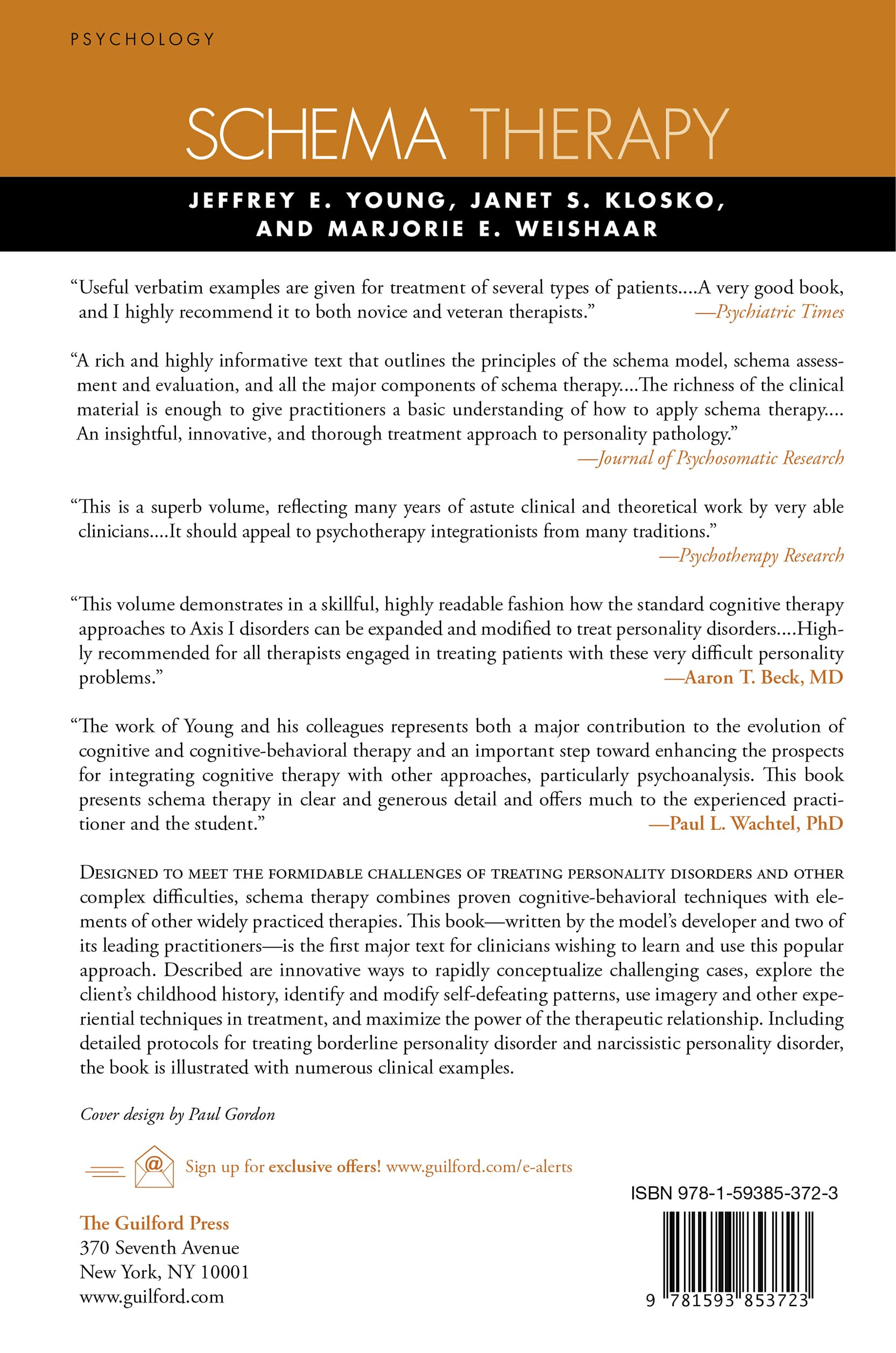


Full description not available
A**R
Great integration of theories!
Very informative and easy to read.
M**X
Will change how you see some/all people - Crazy accurate
While it is a therapy manual, I found it to be by far, the best book on the subject as I was able to understand, and agree with most everything in it as I interact with several people that perfectly exhibit such patterns. And while most common theories mash a bunch of random ideas together, this really ties it altogether into a clear and neat little package that makes a ton more sense.In terms of understanding other people, it really helps to see them in a much higher, compassionate viewpoint, and prevents burnout, which is so common a problem. Heck, it even shows that subjectivity over objectivity is extremely valuable.While it is written to help those that do not necessarily fit neatly into society perfectly, it actually helps to really recognize and eliminate life traps in a much bigger population (e.g. you), and perhaps most importantly, to see peoples problems as a strong need/call for help--and not malicious, selfish, manipulative actions.Lots of people are unnecessarily suffering from various social disorders (e.g. BPD, EDD, and CPSTD), and I am surprised more professionals have not heard of this theoretical approach as it makes much more intuitive and structural sense, and besides, a handful of studies show its the best treatment method by far, esp in a group setting.I really hope this goes viral in the health community and its main ideas reach mainstream public.
L**G
So far so good!
Was recommended this book by a colleague and so far I am really enjoying it. I’ve been interested in schema therapy for some time and would like to implement in my practice in mental health eventually.
B**Y
Great for non-Practitioner who wants to learn themselves better
I like the fact that, as someone who just wants to learn more about herself, this book still works fantastic and so appealing for me to learn more about myself in both patients and practitioners perspective. And it is a great add on to the book Reinventing Your Life.
A**H
Important update to CBT, but its assumptions don't take memory reconsolidation into account!
Well-researched and thorough treatment of a more integrative form of CBT. The formulation of schemas as core belief systems from early experience which can act as the roots of personality disorders brings a much-needed depth to the cognitive-behavioral paradigm, which promises more effective interventions for people suffering with axis II disorders. The references to brain science in support of the methodology add to the soundness of its theoretical basis. My only misgiving is that, given the book was published in 2006, its suggestion that emotional responses encoded by the amygdala/limbic brain can never be erased. This statement seems ignorant of the neuroscience breakthrough research published in 2004 establishing the experimentally proven phenomenon of emotional memory reconsolidation, whereby emotional memory (i.e. the triggered emotional reaction and the dysfunctional beliefs built around them) can be reliably and thoroughly erased vs. overwritten or diminished by neocortex learning. This represents a major development with clinical implications that would probably have resulted in significant revisions or at least modifications of Schema Therapy. Anyone interested in therapies which deliberately or coincidentally incorporate the steps of memory reconsolidation outlined by neuroscience researchers should read Unlocking the Emotional Brain by Ecker et al.
E**Y
Excellent Clinical Manual
This is THE manual to refer to for schema therapy. Schema therapy is extremely effective for long-standing dysfunctional patterns, personality problems and maker deeper, longer lasting change. If you want to do schema therapy, I would also highly recommend an introductory 2 day workshop through the Schema Therapy Institute. There is also a certification program - but if you really just want a flavor of the entire model, go for the intro.The book gives excellent case studies, great experiential exercises and thorough but understandable explanations of technique.
E**G
New Ideas to Jump Start your Practice
This is a wonderful book. I've been in practice for 30+ years. While I have used most of the approaches for a long time, this book has put togetherstrands from many areas of knowledge and practice. It integrates theory and practice, relates directly to therapists' issues, provides usefulcase examples, AND is a fascinating read. Well worth the cost and the 400 page read. I am amazed at how much clarity and progress it hasbrought to my practice.
J**I
A Masterpiece
As a therapist (and certified avdanced Schema Therapist), I have found this book to be an indispensable and in-depth guide to learning about and practicing schema therapy. Explanations about schemas and modes are detailed and comprehensive and therapist-patient dialogs are thorough and riveting. I would highly recommend this work to any therapist interested in bridging cognitive therapy with experiential and psychodynamic approaches in a profoundly original way that has benefitted scores of patients I've worked with over the years.
Trustpilot
1 week ago
1 month ago
1 week ago
1 month ago